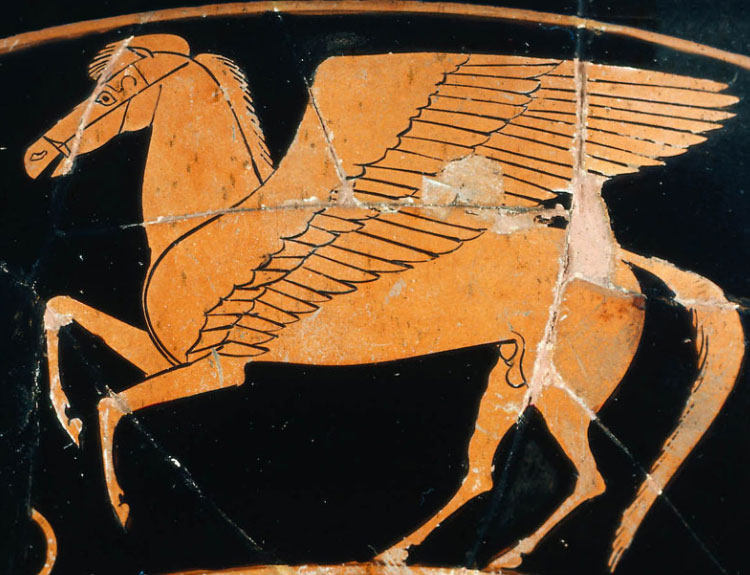PEGASUS – The Myth behind the Name

Pegasus, The Winged Horse In Greek Mythology
The winged horse, born from the liaison of the sea-god Poseidon and the beautiful Medusa. The liaison made the goddess Athena angry, and she cursed Medusa to be ugly and deadly. When she was killed, Pegasus sprang from her neck.
From his birth to his death, Pegasus remained a mysterious creature capable of everything, symbolizing the divine inspiration or the journey to heaven, since riding him was synonymous to “flying” to the heavens. Pegasus was represented as a goodhearted, gentle creature, somewhat naive but always eager to help.
According to legend, everywhere the winged horse struck his hoof to the earth, an inspiring water spring burst forth. Hesiod relates how Pegasus was peacefully drinking from a spring when the hero Bellerophon captured him. Hesiod also says Pegasus carried thunderbolts for Zeus.
For his service and loyalty, Zeus honoured him with a special immortality turning Pegasus into a constellation on the last day of his life.
In legend, Bellerophon, who became king of Corinth, tamed Pegasus with the aid of a golden bridle given to him by the goddess Athena. So Pegasus appears on many coins of Corinth and her colonies.

